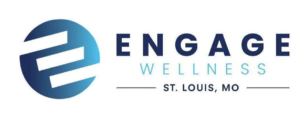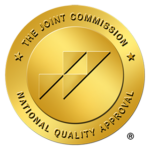EMDR Therapy In St. Louis | Engage Wellness Missouri
Processing Trauma and Addiction With Evidence-Based Therapy
Find Hope In The Darkness With EMDR Therapy For Addiction
Trauma and addiction are often deeply intertwined. Studies reveal that 75% of those who struggle with substance use or alcohol use disorder have experienced some form of trauma in their life.[1] In the treatment setting, that rate is even higher. There is no balance in this circumstance, only chaos. But practical, evidence-based help is available. EMDR therapy for addiction works to alleviate traumatic associations and reduce their impact on other damaging patterns.

What is EMDR Therapy?
Eye movement desensitization and reprocessing (EMDR) therapy uses bilateral stimulation of the brain to alleviate the negative emotions and negative impact of traumatic experiences.[2] It may be an appropriate treatment for anyone struggling with mental health issues, post-traumatic stress disorder (PTSD), bipolar disorder, substance use disorders, and depressive disorders.
EMDR therapy is offered on-site at our St. Louis recovery center and is administered by a trained EMDR therapist or licensed professional counselor. At Engage Wellness Missouri, we know that the healing process for addiction and trauma is more than sobriety. We are committed to an integrated treatment approach that addresses both disorders to facilitate whole-person healing.
How (and Why) EMDR Therapy In Missouri Works
The goal of EMDR therapy is to help our clients process past trauma, overcome negative beliefs, and learn practical strategies for emotional regulation by changing how the brain stores memories—all of which are also highly beneficial for navigating substance abuse.
Bilateral stimulation in EMDR therapy activates the two different sides of the brain while talking through traumatic memories and negative emotions, and introducing positive statements that contradict negative beliefs.[3] Stimulation may be in one of several different forms, including left-right eye movements, finger tapping on the knees, sound through headphones, or handheld buzzers or tappers. This form of therapy allows you to redefine and reframe your responses to past trauma.
At Engage Wellness, EMDR is one of several effective treatments for co-occurring disorders and addiction. Other therapies and treatment methods may include cognitive behavioral therapy, medication-assisted treatment, group therapy, and more.

Efficacy of EMDR Therapy For Addiction and Trauma
In the field of trauma, EMDR is well-regarded as a highly effective treatment. When treating trauma or PTSD as one component of a co-occurring disorder, the data continues to show positive outcomes.
One study revealed that all participants experienced improved clinical condition with fewer post-traumatic, dissociative, and psychiatric symptoms. Additionally, EMDR helped to reduce the psychological spike in anxiety symptoms common during withdrawal. It also contributed to better emotional regulation and improved stability, both of which reduce the risk of relapse.[4]
What to Expect from EMDR Therapy Sessions
EMDR therapy conceptualizes cravings and harmful patterns of alcohol or substance use as symptoms of unresolved trauma, including nightmares, flashbacks, and physical sensations like hyper-arousal, which can trigger a desire to self-medicate. The goal of EMDR is to help you and your body reprocess traumatic events to reduce or eliminate the physical, mental, and emotional impact, which leads to a reduced risk of relapse.[5]
EMDR sessions typically follow eight phases:[6]
It’s never easy to relive or revisit stressors of the past. However, it may be essential for your overall well-being and the success of your healing journey. By resetting how your brain stores traumatic memories and the emotions tied to that memory, you can feel increasingly more relaxed over the course of EMDR sessions.

EMDR Therapy In St. Louis at Engage Wellness
We understand the impact of trauma and negative experiences here at Engage Wellness Missouri. Those moments have a ripple effect in every area of life and can sometimes be carried with you through a lifetime. However, with the right trauma therapy and peer support, you can overcome your past and better navigate your present.
Each treatment program offers opportunities to participate in the EMDR treatment approach. The scope and timeline of EMDR sessions will be assigned according to individualized treatment plans prescribed by our clinicians. All of our mental health and substance use disorder treatment services are offered as part of the following treatment options



